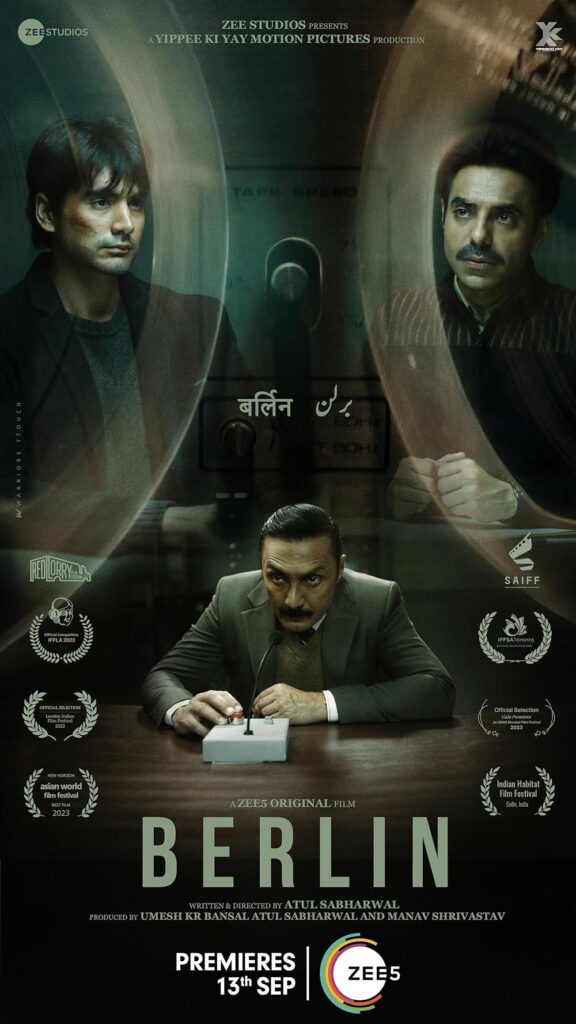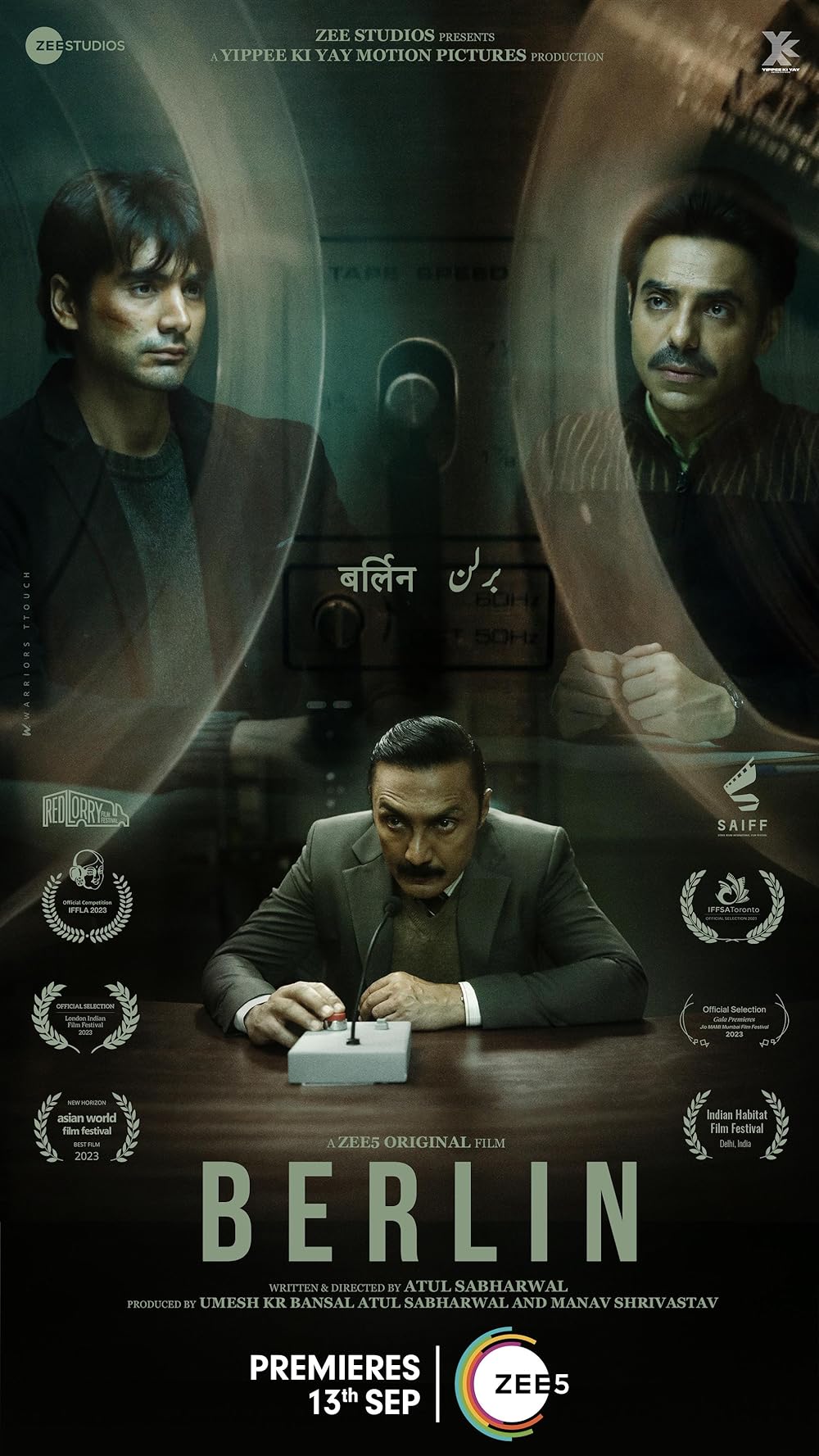A spy thriller, by its very definition, requires a blend of espionage and excitement. Berlin, set against the backdrop of Delhi in 1993, delves into the tense interactions between two central characters: Pushkin Verma (Aparshakti Khurana), a seemingly ordinary teacher at a deaf-mute institute, and Ashok Kumar (Ishwak Singh), a speech-and-hearing impaired man who finds himself accused of being a foreign spy.
The film immerses viewers in a world brimming with espionage. Spies are depicted emerging from shadowy, airless offices, rifling through safes in cramped government flats, and exchanging whispered secrets in a discreet cafe named Berlin. This establishment operates as a crucial hub for espionage activities, serving as both a clearinghouse and a listening post for spies of various stripes.

The plot thickens with the highly anticipated visit of the Russian president, which has set the entire spy network on edge. Suspicion runs high as agents fear a potential assassination attempt, leading to a flurry of arrests and intense interrogations. As the stakes rise, the narrative unfolds with a gripping blend of intrigue and suspense, showcasing the intricate dance of deception and danger characteristic of a compelling spy thriller.
In Berlin, directed by Atul Sabharwal, the true star of the film is its production design. The portrayal of Delhi is strikingly bleak, capturing a cityscape that has rarely seemed so dreary, monotonous, and grey. The setting is in the heart of winter, with overcast skies and a persistent absence of sunlight, rendering the entire film devoid of vibrant color for its entire two-hour duration, save for a few muted interior scenes in domestic settings.
The film’s central performances are delivered by Aparshakti Khurana and Ishwak Singh. Khurana plays Pushkin Verma, a seemingly ordinary individual whose name cleverly nods to the past era of close Indo-Russian ties and the widespread influence of Russian literature. Singh, portraying an orphan who has been sidelined from his institute’s football games but demonstrates impressive agility in a dark interrogation cell, gives a standout performance. Singh’s portrayal is particularly compelling; his expressive eyes convey a depth of emotion that adds a significant layer to his character.
In a film like Berlin, which is designed to build tension slowly and steadily, the crucial element of escalating suspense is notably absent. Despite the involvement of notable actors such as Rahul Bose as Sondhi, the head of the investigative team, Kabir Bedi as the high-ranking official, and Anupriya Goenka as an enigmatic Mata Hari-like figure, the narrative fails to generate the mounting tension one would expect. The story, which involves a web of dubious activities including torture, seduction, blackmail, and murder, lacks the emotional edge needed to captivate the audience.
The rivalry between the local agencies, referred to as Wing and Bureau (presumably standing in for RAW and CBI), feels contrived and devoid of depth. The only characters who manage to make a lasting impression are those outside this main web: Joy Sengupta, delivering a memorable performance as a sardonic individual discussing liberalization and ambition in a single scene, and the actress playing his daughter, who is proposed as Pushkin’s potential bride.
Throughout the film, there is a palpable lack of fear or investment in the characters. The world of Berlin, populated by faceless, shadowy figures engaged in murky dealings, aims to evoke the atmosphere of John le Carré’s novels. However, unlike the gripping tension of le Carré’s classics, Berlin falls flat, leaving behind a sense of monotony rather than dread.

